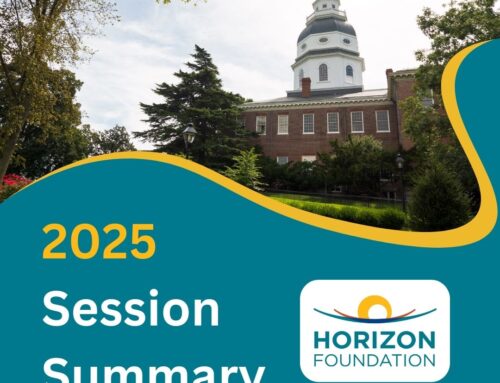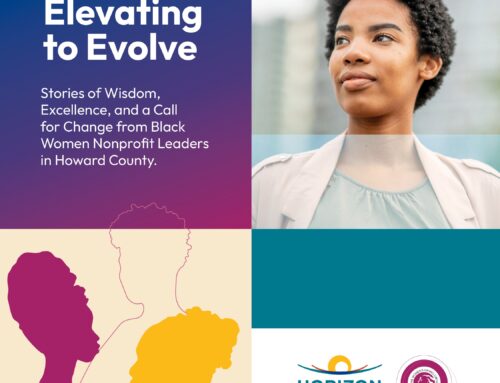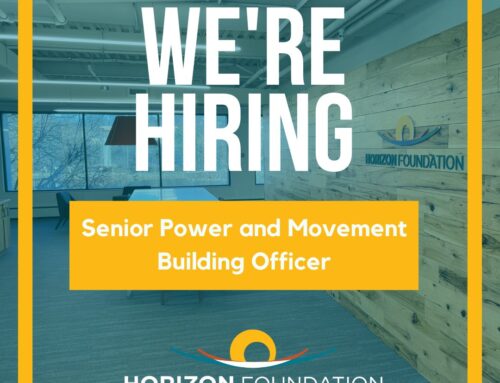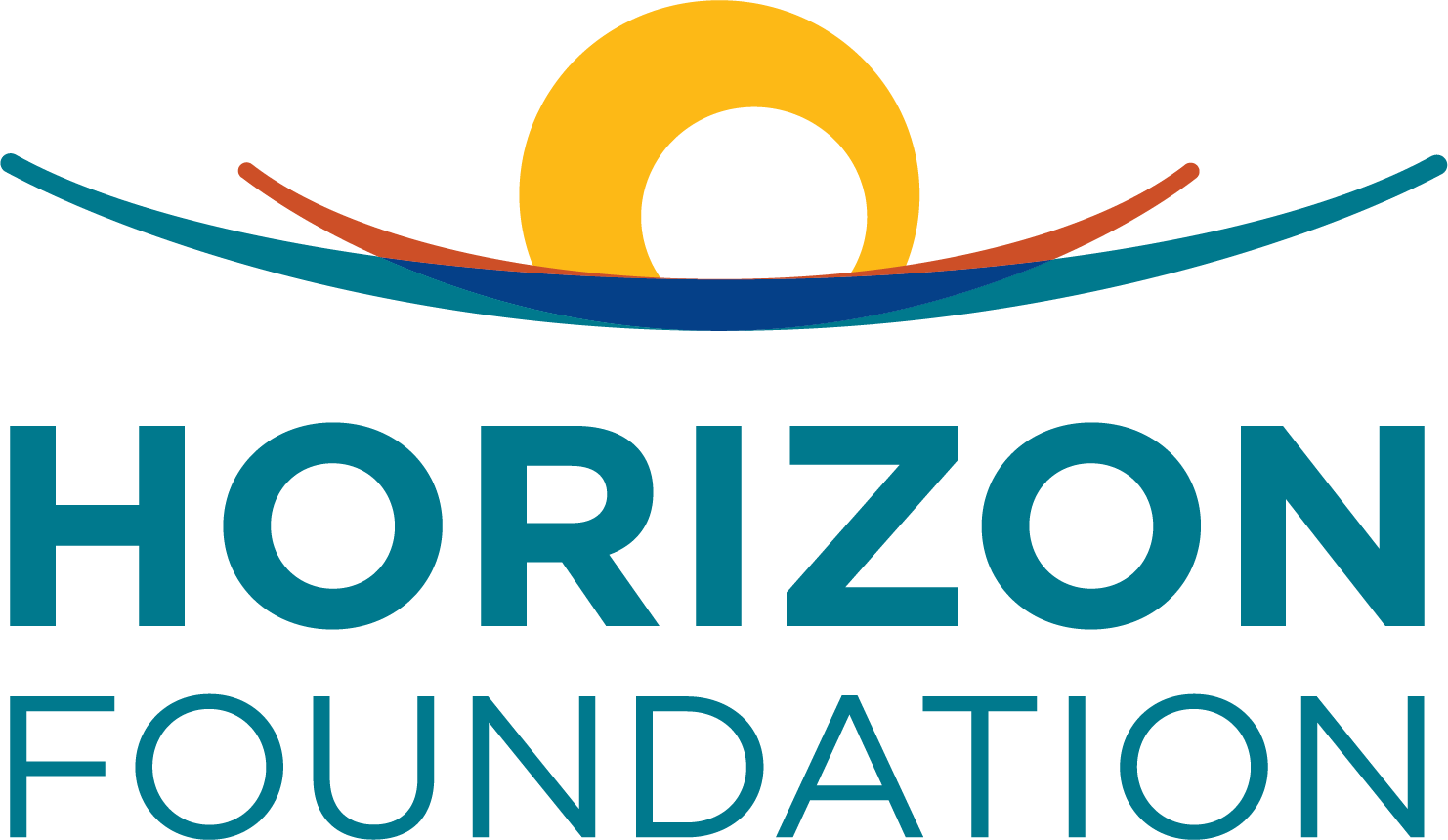“I felt like it was my calling and my purpose in life to help the younger version of myself.”
For Marcus Alston, improving awareness and access to mental health services for young people is personal as much as it is professional. Born and raised in Howard County, Alston is a former athlete who dealt with mental health challenges throughout his childhood and through suffering injuries while playing football. This came at a time when mental health in athletics was barely burgeoning as a topic of conversation – and not at all among Alston’s peers, young men of color.
Alston is far from alone in his experience – and unfortunately, that experience is becoming more and more common. One study found that 33% of all college students experience significant symptoms of depression, anxiety or other mental health conditions. Among that group, 30% seek help – but that number drops to just 10% for college athletes with mental health conditions.[i]
Mental health challenges are rising across the board. In Maryland, nearly 37% of Black high school students and 39% of Hispanic or Latino high school students report feeling sad or hopeless.[ii] Here in Howard County, our most recent county health assessment survey found more than a third of adult residents were “bothered by having little interest or pleasure in doing things” for several days or more over the previous two weeks. This number has risen significantly since 2018. In the same survey, respondents under age 45, Black and Hispanic residents and those in households with incomes under $50,000 per year were significantly more likely to report feeling down, depressed or hopeless.[iii]
With the need so prevalent, Alston decided to devote himself to building a stronger system of support for young athletes experiencing similar challenges that he did growing up.
“I took the experiences of things that I endured and took a leap of faith to leave my IT job and start my own nonprofit because that was the best way to go about helping the next generation of athletes with their mental health challenges,” says Alston.
Founded in 2019, the mission of his nonprofit, Alston for Athletes, is to advocate for student-athlete mental health awareness through policy change and providing access to mental health services. In its first few years, Alston for Athletes focused primarily on providing Mental Health First Aid training to coaches of student athletes, an important and evidence-based training program to help coaches recognize and respond to signs of mental health and substance use challenges among the youth they work with. Alston was able to expand this work to coaches, athletic directors and trainers in Howard County by winning the 2021 Changemaker Challenge, a “Shark Tank for good”-style social impact competition hosted by the Horizon Foundation, United Way of Central Maryland, the Community Foundation of Howard County and the Women’s Giving Circle of Howard County.
As his work in mental health training for coaches grew, Alston decided to take his work to the next level – advocating for policy change in order to make a systemic impact. In 2024, Alson worked with State Senator Shelly Hettleman and Delegate Dalya Attar to sponsor SB 165/HB 204, a bill that requires mental health training for athletic coaches at public schools and universities. Alston garnered a broad swath of support for this bill, which ultimately passed with large, bipartisan majorities and was signed into law. He is even expanding this beyond Maryland’s borders; he helped pass similar legislation for public universities in Virginia and has partners interested in doing the same in Minnesota, California, Wisconsin and other states.
“I would like to get coaches mental health training passed in at least 5 blue states and 5 red states, and then long-term make the push at the federal level,” says Alston.
Alston knows that barriers to mental health treatment extend beyond needing to raise awareness and expand training programs. That’s why Alston for Athletes also provides mental health scholarships to collegiate student athletes – small grants that help pay for student athletes’ therapy sessions during the school year with a licensed provider, as many schools do not have in-house clinical sports psychologists and their services are often not in-network or reimbursable by insurance. Alston hopes to grow this program by branching out to youth sports and high school programs and partnering with more universities to create self-sustaining scholarship funds that give student athletes more access to mental health services at school.
Alston is also exploring policy opportunities to mandate mental wellbeing checks in pre-participation physicals for athletes before their season starts, at least at the high school level.
“We need to increase screening for mental health conditions for student athletes at an earlier age so we are then able to refer them to the proper resources,” says Alston. “If I had something like that, I could have started therapy at a much younger age.”
Though Alston continues to grow in his advocacy work beyond Maryland, he is also keeping things close to home. Alston was named as one of the Horizon Foundation’s new Advancing Community Advocacy Fellows, a two-year grant program to work alongside the Foundation and its partners to build their organizing and advocacy capacity by helping them use their power to advance issues that matter most to them and their community.
“I’ve had some success with legislation previously but I still feel like I am learning and growing in that area,” says Alston. “This is a good opportunity because many other student mental health nonprofits do not have a legislative arm and groups across the country are turning to me and my team for guidance. This fellowship will help me sharpen my skill set, learn more about local advocacy and work alongside Foundation staff like Jennifer [White Holland, the Foundation’s policy and community engagement director], who can help mentor me.”
Looking forward to his fellowship and beyond, Alston knows that there is a lot more work to be done in order to improve access to compassionate, affordable mental health care – not only for athletes but for all people.
“We need to try to find ways to incentivize the next generation of young people to get into this field,” says Alston. “Demand for mental health resources is at an all-time high, but there are just not enough providers. How do we help meet the demand? How can we reduce long wait times to see counselors? How can we get the large caseloads of counselors down to more manageable levels? We need more opportunities and more funding for mental health.”
With the passion for helping his younger self core to his purpose, Alston will continue working step-by-step to make that vision a reality.
[i] Athletes for Hope, 2019. https://www.athletesforhope.org/2019/05/mental-health-and-athletes/
[ii] Maryland Youth Risk Behavior Survey, 2022. https://health.maryland.gov/phpa/ccdpc/Reports/Pages/YRBS-2022-2023.aspx
[iii] Howard County Health Assessment Survey, 2024. https://www.howardcountymd.gov/sites/default/files/2025-02/HCHAS%202024%20Final%20Report.pdf




